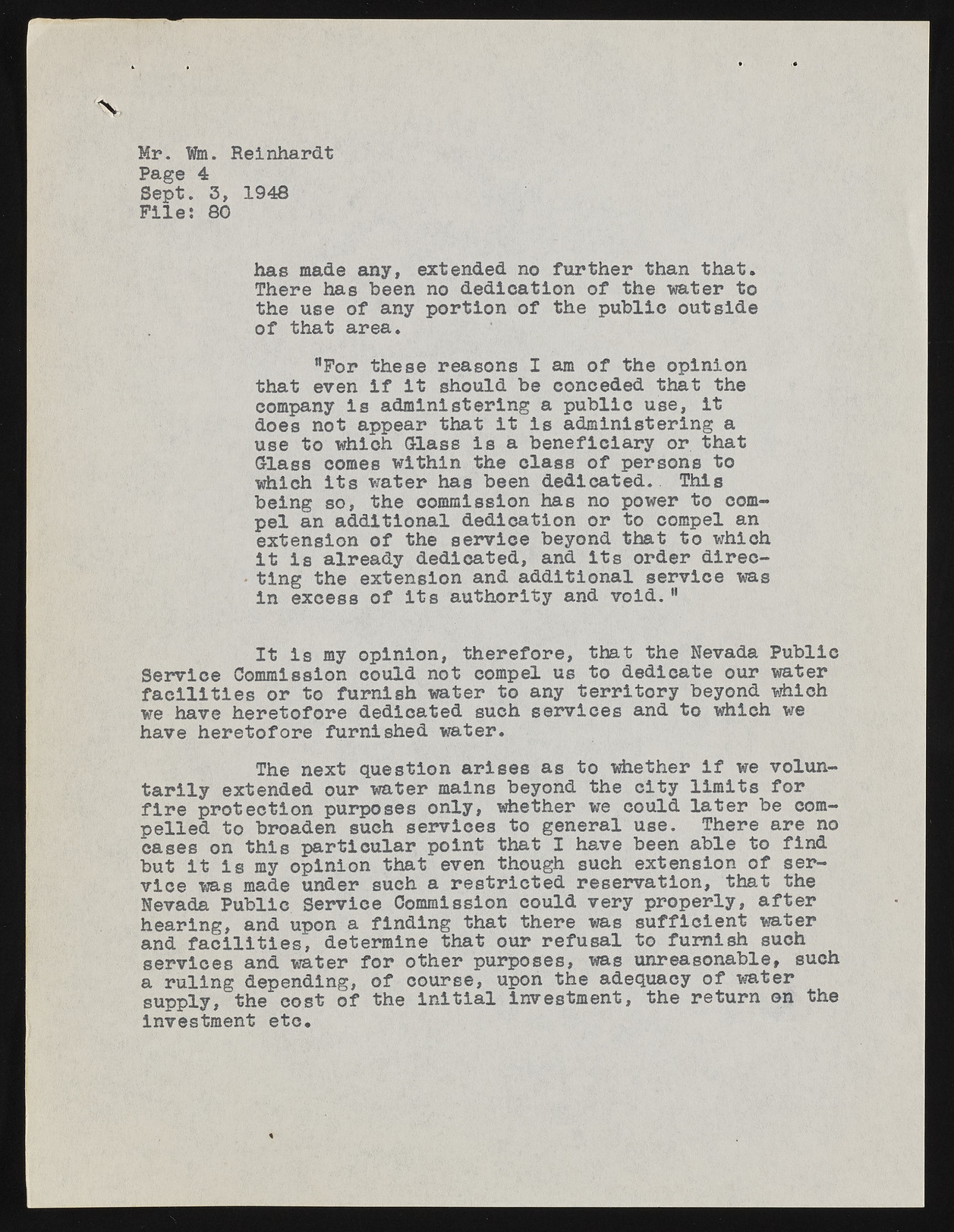Copyright & Fair-use Agreement
UNLV Special Collections provides copies of materials to facilitate private study, scholarship, or research. Material not in the public domain may be used according to fair use of copyrighted materials as defined by copyright law. Please cite us.
Please note that UNLV may not own the copyright to these materials and cannot provide permission to publish or distribute materials when UNLV is not the copyright holder. The user is solely responsible for determining the copyright status of materials and obtaining permission to use material from the copyright holder and for determining whether any permissions relating to any other rights are necessary for the intended use, and for obtaining all required permissions beyond that allowed by fair use.
Read more about our reproduction and use policy.
I agree.Information
Digital ID
Permalink
Details
More Info
Rights
Digital Provenance
Publisher
Transcription
% Mr. Wm. Reinhardt Page 4 Sept. 3, 1948 File: 80 has made any, extended no farther than that. There has been no dedication of the water to the use of any portion of the public outside of that area. "For these reasons I am of the opinion that even if it should be conceded that the company is administering a public use, it does not appear that it is administering a use to which Glass is a beneficiary or that Glass comes within the class of persons to which its water has been dedicated. This being so, the commission has no power to compel an additional dedication or to compel an extension of the service beyond that to which it is already dedicated, and. its order directing the extension and additional service was in excess of its authority and void." It is my opinion, therefore, that the Nevada Public Service Commission could not compel us to dedicate our water facilities or to furnish water to any territory beyond which we have heretofore dedicated such services and to which we have heretofore furnished water. The next question arises as to whether if we voluntarily extended our water mains beyond the city limits for fire protection purposes only, whether we could later be compelled to broaden such services to general use. There are no cases on this particular point that I have been able to find but it is my opinion that even though such extension of service was made under sueh a restricted reservation, that the Nevada Public Service Commission could very properly, after hearing, and upon a finding that there was sufficient water and facilities, determine that our refusal to furnish such services and water for other purposes, was unreasonable, such a ruling depending, of course, upon the adequacy of water supply, the eost of the initial investment, the return on the investment etc.

